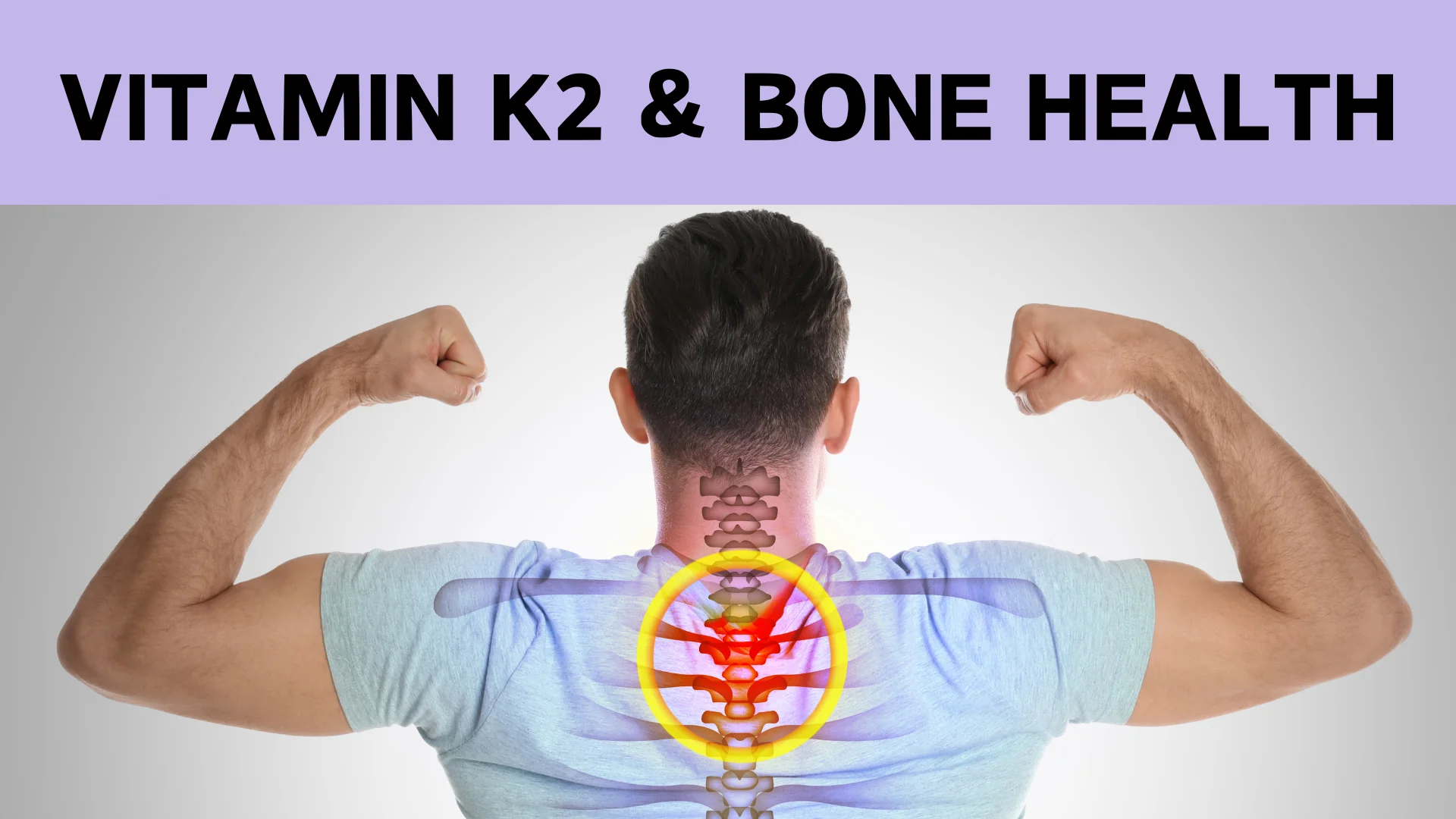What’s the Role of Vitamin K2 in Bone Health?
The Essential Role of Vitamin K2 in Bone Health: Unlocking the Path to Stronger Bones Naturally
Vitamin K2 is rapidly gaining attention in the health and wellness community for its critical role in bone health. While calcium and vitamin D have long dominated the conversation around strong bones, vitamin K2 is now recognized as a vital component in maintaining bone density and preventing bone-related disorders. This article explores in-depth the mechanisms through which vitamin K2 supports skeletal strength, how it compares to other nutrients, and why supplementing with K2 can be a game-changer for your long-term health.
Vitamin K2
What Is Vitamin K2 and Why Is It So Important?
Vitamin K2, also known as menaquinone, is a fat-soluble vitamin that plays a key role in activating proteins that regulate calcium usage in the body. Unlike vitamin K1, which is primarily involved in blood clotting, vitamin K2 ensures that calcium is directed to the bones and teeth where it belongs — and not to soft tissues like arteries, where it can cause harm.
Research shows that vitamin K2 helps activate osteocalcin, a protein responsible for binding calcium to the bone matrix. Without sufficient K2, calcium cannot effectively fortify the bones, leading to weak or brittle bones over time.
How Vitamin K2 Supports Bone Mineralization
The bone-strengthening benefits of vitamin K2 stem from its ability to regulate calcium metabolism. It works synergistically with vitamin D3, which enhances calcium absorption from food, but K2 ensures that the absorbed calcium is deposited in the right places.
Key Benefits Include:
- Enhanced bone mineral density
- Improved calcium utilization
- Reduced risk of fractures and osteoporosis
- Slower age-related bone loss
Several studies suggest that individuals who consume more vitamin K2 have stronger bones and fewer fractures compared to those with lower intake.
The Synergistic Relationship Between Vitamin K2, Vitamin D3, and Calcium
To fully understand how to improve bone strength naturally, it’s crucial to consider how vitamin K2 interacts with other nutrients. Vitamin D3 increases calcium absorption in the intestines, but it does not dictate where that calcium goes. Without vitamin K2, there’s a risk that calcium could accumulate in arteries rather than fortify the bones.
That’s where K2 comes in — it activates matrix Gla-protein (MGP) and osteocalcin, ensuring that calcium is directed to bones and not arteries. Therefore, for optimal skeletal health, it’s ideal to combine vitamin K2 with vitamin D3 and calcium in your supplement regimen.
Natural Sources of Vitamin K2 for Bone Health
Unlike vitamin K1, which is abundant in leafy greens, vitamin K2 is found in fermented foods and certain animal products. If you’re looking to boost your vitamin K2 intake naturally, consider the following foods:
- Natto (fermented soybeans) – the richest source of MK-7 (a form of K2)
- Hard cheeses contain moderate amounts of K2
- Egg yolks
- Chicken liver
- Grass-fed butter
Despite these sources, many people in Western countries do not get enough K2 through diet alone, which is why supplementation is often recommended.
Vitamin K2 Supplements: MK-4 vs. MK-7 – Which One Is Better?
When choosing a vitamin K2 supplement for bone health, you’ll often see two common forms: MK-4 and MK-7.
MK-4:
- Found in animal products
- Shorter half-life (taken multiple times per day)
- May require higher doses for bone benefits
MK-7:
- Derived from fermented foods like natto
- Longer half-life (taken once daily)
- More effective in long-term bone health maintenance
For long-lasting benefits, especially when focusing on preventing osteoporosis or improving post-menopausal bone strength, MK-7 is typically the preferred choice.
Who Should Consider Taking Vitamin K2?
Vitamin K2 supplementation may be beneficial for various groups, particularly those at higher risk for bone loss or calcium mismanagement.
Recommended for:
- Postmenopausal women are at risk of osteoporosis
- Elderly individuals experiencing bone loss
- People taking calcium or vitamin D supplements
- Those with limited intake of fermented foods
- Individuals with chronic illnesses affecting nutrient absorption
Always consult a healthcare professional before starting any supplement, especially if you’re on blood thinners or other medications.
Clinical Evidence Supporting Vitamin K2’s Role in Bone Strength
Numerous clinical studies have highlighted vitamin K2’s positive impact on bone mineral density (BMD) and fracture reduction.
Key Findings:
- A Japanese study found that postmenopausal women who supplemented with MK-7 had increased bone density and lower fracture rates.
- European research shows that higher dietary intake of vitamin K2 is associated with reduced risk of hip fractures.
- In combination with D3, K2 supplementation significantly improved calcium regulation and skeletal strength.
These findings reinforce the growing consensus that vitamin K2 is an essential nutrient for maintaining a healthy and resilient skeletal system.
The Future of Bone Health: Why Vitamin K2 Deserves a Permanent Spot in Your Regimen
As the understanding of bone health expands, vitamin K2 is emerging as an indispensable nutrient in both prevention and management of bone disorders. Its ability to work in synergy with vitamin D and calcium, while minimizing risks associated with calcium misplacement, makes it a top-tier supplement for anyone concerned about bone strength and longevity.
Whether you’re entering your golden years, recovering from a bone injury, or simply aiming for better preventative care, incorporating vitamin K2 could be a powerful step toward stronger, healthier bones.
- Best vitamin K2 supplement for bone health
- Vitamin K2 and D3 benefits for bones
- How vitamin K2 helps calcium absorption
- MK-7 vs MK-4 for bone health
- Natural sources of vitamin K2 for stronger bones
- Vitamin K2 dosage for osteoporosis prevention
- Synergistic nutrients for bone strength
- Vitamin K2 for postmenopausal bone loss
- Calcium, vitamin D and K2 combination for bone density
- Does vitamin K2 help with bone fractures




